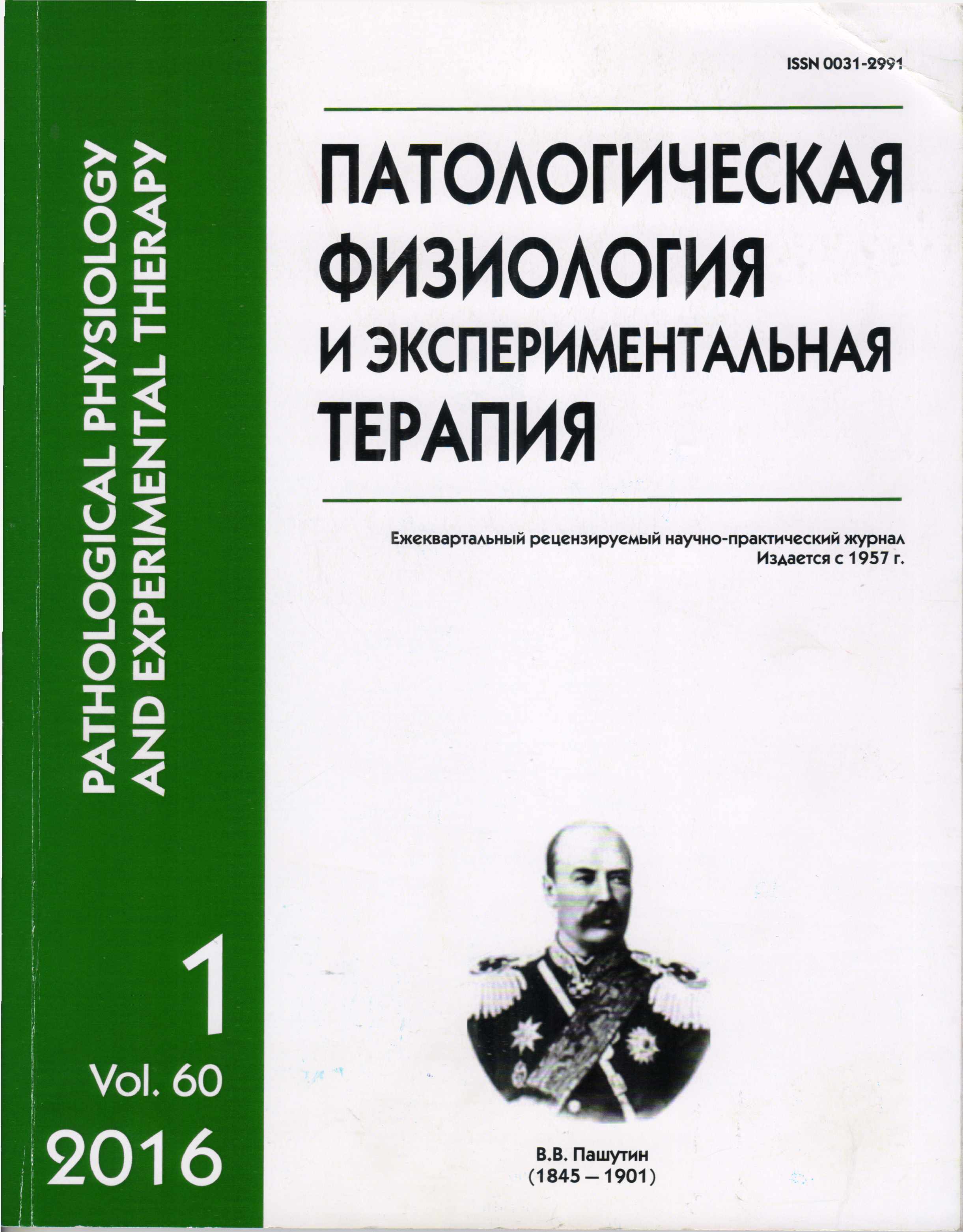Effect of intranasally administered glutamate antibodies on the content of excitatory and inhibitory amino acids in the rat’s hippocampus and hypothalamus at the combined stress exposure
Keywords:
f interest. The authors declare no conflict of interest.
Abstract
For correspondence: Vetrile L.A., e-mail: Vetrile.l@yandex.ruDownloads
Download data is not yet available.
Published
22-03-2016
How to Cite
Vetrile L. A., Zakharova I. A., Kudrin V. S., Klodt P. M. Effect of intranasally administered glutamate antibodies on the content of excitatory and inhibitory amino acids in the rat’s hippocampus and hypothalamus at the combined stress exposure // Patologicheskaya Fiziologiya i Eksperimental’naya Terapiya (Pathological physiology and experimental therapy). 2016. VOL. 60. № 1. PP. 4–10.
Issue
Section
Original research






